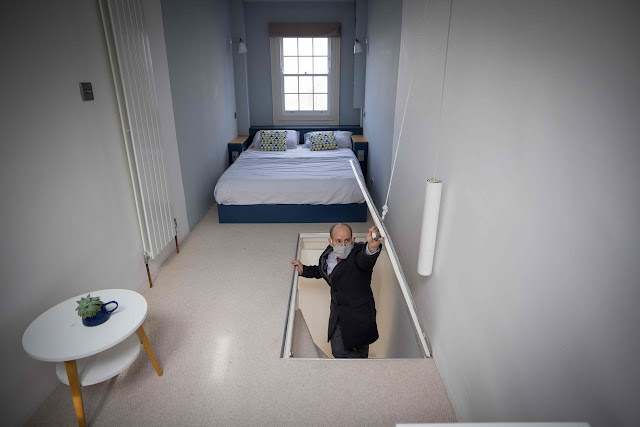HOUSING PRICES IN THE UNITED KINGDOM ARE INCREASING AT THE Rapid Speed IN 15 YEARS.
UK house prices recorded their strongest three-month growth in 15 years in November, driven by demand for a limited supply of housing, low mortgage rates, and a strong labor market.
According to Halifax, the average UK property price touched a new high of £ 273,000 last month. Home values increased by 1% in October, compared to the same period last year, when they increased by 8.2 percent.
"A shortage of available properties, a healthy job market, and tough competition among mortgage providers continue to sustain market performance, maintaining rates around historic lows," said Russell Galley, Managing Director of Halifax.
House prices climbed 3.4 percent over the previous quarter in the three months to November, the quickest rate since 2006.
Despite prolonged weakness in the London property market, average house prices have risen sharply across the country, as residents of the capital sought to transfer to larger and less crowded areas, owing in part to the shift to working from home.
In November, house prices in London were 1% higher than in the same month the previous year, compared to a 15% increase in Wales and 10% in Northern Ireland.
House prices have grown by £ 34,000, or £ 1,700 per month, since the pandemic began in March 2020 and the UK's first foreclosure.
As a result, purchasing a home in Wales has never been more expensive, with the average price of a home surpassing the £ 200,000 barrier for the first time since records began.
The epidemic housing boom has continued past the stamp duty holiday, according to Halifax figures.
After the first coronavirus shutdown in July 2020, the party was formed to give homeowners tax relief on the first £500,000 of any property purchase in England or Northern Ireland. The tax-free threshold was slashed in half at the end of June this year, to £ 250,000, before expiring in October.
While the temporary drop in stamp duty "served as a catalyst," Anna Clare Harper, managing director of real estate consultant SPI Capital, claimed it was "not the cause of the recent surge in house prices."
Realtors reported "the lowest levels of homes available to buy we have seen to date," according to Nathan Emerson, managing director of Propertymark, an industry organization.
According to supplementary data from the Bank of England, the "effective" interest rate on mortgages, or the real interest rate paid, fell to its lowest level since records began in October.
Because the Omicron variant of the coronavirus adds uncertainty to the real estate in London market's outlook, Andrew Wishart, a real estate economist at Capital Economics, believes it could actually drive up house prices.
Concerns about the virus may continue to stimulate housing demand by lowering loan rates for a longer period of time, as people look for additional room and increase household savings.
However, Halifax's Galley said that the present rate of rising would not continue next year because "home price-to-income ratios are already historically high, and household budgets are failing." Due to rising inflation and high energy costs, will most likely be under greater pressure in the months ahead."




Comments
Post a Comment